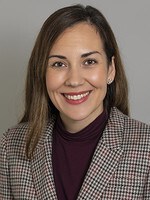MIDWIZE - Capacity building leadership program for public health officials in maternal and child health
Program period: 2 September 2024 – 30 May 2025
The application period for above course round has expired.
The program is free of charge.
Karolinska Institutet is offering a part-time leadership program for governmental, academic and clinical professionals in Ethiopia, Kenya and Uganda. The program builds on the Centre of Excellence for Sustainable Health, a collaboration between Karolinska Institutet and Makerere university, which aims to explore the complex health challenges of today and tomorrow are situated within the broader 2030 Agenda.
About the Midwize program
The program:
- aims to build capacity within the public health sector in the field of reproductive, maternal and newborn health
- offers a creative and innovative approach to build professional competences and confidence for leaders
- is funded by the Swedish Institute
Content
The content was developed based on the MIDWIZE conceptual framework - evidence based care and multisectoral collaboration in a health systems approach. The program includes:
- Introductory webinar
- Training package for all participants focusing on the targeted SDGs
- Implementing strategies for quality improvements in health care settings
- Leadership and management within healthcare systems in low- and middle-income settings
- Project: All participants will work with relevant projects, both individually and in teams, addressing concrete challenges identified and defined during the program
- Mentoring will be offered by subject-specific supervisors
Some of the topics that will be addressed:
- What is sustainable health and what are the ways of getting there? Globally, regionally and nationally – in collaboration.
- How can quality of care be sustained and further improved during and after the covid-19 pandemic?
- How to encourage interdisciplinary multi-professional teamwork and what makes a team a team?
- How to systematically close the gap between what we know and what we do?
- How to utilize evidence-based practices by choosing the right implementation strategies.
The capacity building training program connects and spans across five sustainable development goals (SDG 3, 5, 10, 13 and 16). We will work together within and between professions with specific areas for improvement. A team of experienced lecturers and researchers within implementation, leadership and health economy in relation to reproductive, maternal, newborn, child and adolescents’ health and nutrition are engaged in the program.
- This program will educate officials, in government institutions such as health and education ministries, public health authorities and public or private hospitals and universities with medical and nursing education in Ethiopia, Kenya and Uganda
- In each of the three countries, course participants should select at least one hospital and use the skills from the program to spread the MIDWIZE changes to the new hospital
- There will be a mixture of participants from governmental institutions, academia and clinical care
- In total 27 participants will be enrolled in the program
Previous participants
"Thanks Karolinska Institutet for coming up with the program! It has changed my way of thinking and improved my work performance", Hellen Mutsi, program participant.
Read an article about Tewodros Seyoum, a participant from Ethiopia: "KI training supports midwife Tewodros Seyoum's quest to improve the Ethiopian healthcare system"
You apply by submitting your CV and motivation letter describing how you are relevant to the target group, your background and motivation for applying.
Selection is based on the following criteria:
- Target group and strategic fit
- Management level position and responsibility
- Relevance of your role and support from your employee organisation
- Background and motivation for applying, and utilizing the experience and network after the programme
- The programme will seek to select a diverse group of participants with regards to gender, age, background (professional and personal), country and roles/responsibility
How is the program delivered?
The program is led by:
- Helena Lindgren, Senior Lecturer and Associate Professor, Department of Women's and Children's Health, Karolinska Institutet
- Michael Wells, Docent and Associate Professor, Department of Women's and Children's Health, Karolinska Institutet
in collaboration with:
- Dr Joyce Jebet, University of Nairobi, Kenya
- Mariam Namutebi, Lecturer, School of Nursing and Midwifery, Makerere University, Uganda
- Solomon Hailemeskel, PhD and Lecturer, University of Gondar, Ethiopia
The program will be delivered on approx. 20% speed requiring all participants to actively contribute and use around 6-10 hours/week.
The program will mainly run online, both through prerecorded webinars and videos as well as online interactive real-time workshops and group work. Physical meetings and study visits in each respective country will also be facilitated.
Funded by the Swedish Institute
This program is funded by the Swedish Institute and part of the SI Public Sector Innovation Program, in which universities and colleges provide training programmes for public sector employees and elected representatives from more than twenty countries. The purpose is to strengthen the capacity of professionals to contribute to innovation in the public sector and support the implementation of the 2030 Agenda for sustainable development.
Contact

